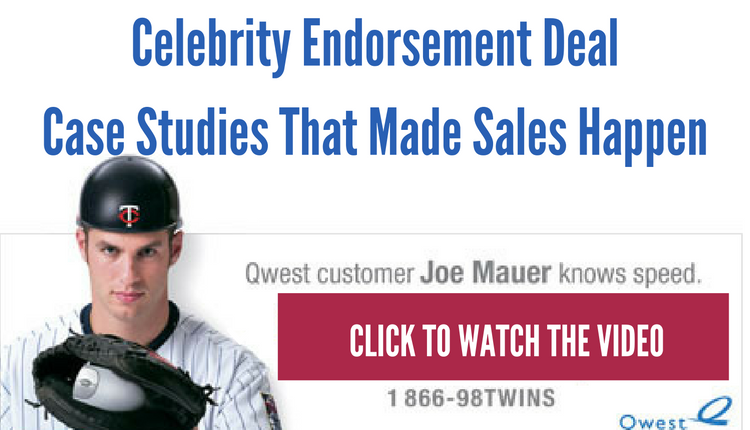Political Strategy In Brand Marketing
Table Of Contents
Dangerous Roads Ahead - Take Curves Cautiously
The marketing world is listening as more and more millennials and gen-zers are saying they want to purchase from brands who care. Who have a voice. Who take action.
So how does a brand strategically get involved with its target demographics through engagement, and not alienate the rest of the consumer driven market that needs to accept the brand presence? It's tough and requires walking a fine line. In this blog, Hollywood Branded discusses the benefits and dangers of aligning brand marketing campaigns in a politically charged climate, and shares examples of what has, and has not, worked when creating political strategy in brand marketing.
Do Consumers Want Brands To Take Sides In Politics?
In a recent survey by creative agency DNA Seattle of Americans who consume all sorts of traditional and digital media found that the majority of people living in the USA want to see a common ground in today’s politically divided nation. In fact, in the survey of 2,000 Americans, 54% of respondents agree on some level that brands should help build common ground and avoid taking sides. The study also found that the current political climate is essentially the third most important issue facing the country after child safety and privacy.
“Just as political candidates are courting independent votes, brands can broaden their relevance to more people by championing common ground than by firmly planting a flag on the side of any single issue or candidate,” Alan Brown, CEO and co-founder of DNA Seattle
Aligning With - Or On The Other Side - Of A Political Movement
Some brands can easily get away with aligning themselves with a particular cause or politically charged motive, if there is a true and authentic opportunity to highlight a long standing and on-going challenge that has faced an impartial divide. For example, a politically charged motive in the world of politics may approve the use of toxins that pollute the environment, and a brand may see an opportunity to do something to donate profits from their sales to help the environment and planet … but this may offend the political support, and be the start of the battle between of brand and consumer.
 Patagonia
Patagonia
Patagonia is a brand that has successfully managed to take a political stance. The outdoor apparel brand, which has a history of donating money to environmental causes, condemned the Trump administration’s tax cuts last year by donating the $10 million it saved from them to environmental groups. That's pretty feel good, and hard for either political party to find fault with.
Big Brand & Politics … Do Marketers Care?
Years ago, most brands and companies would have not said a word just to make a buck and to keep revenue the top priority. Now these same companies are weighing in heavily, to ensure that they demonstrate that their brands care about the very consumers buying their products.
The issues range from gun violence to immigration and free speech. Brands are changing the strategy and messaging to align with these issues. Think of Walmart who stopped selling assault weapons after the influx of mass shootings, or when Apple & Google came out against President Trump’s immigration ban against Muslims and the countries that had the majority Muslim population. Or the flurry of advertising supporting immigration like with Budweiser's Super Bowl ad.
Or Starbucks’s CEO Howard Schultz announcing the company’s commitment to hire 10,000 refugees. “We are living in an unprecedented time, one in which we are witness to the conscience of our country, and the promise of the American Dream, being called into question,” wrote Schultz. “These uncertain times call for different measures and communication tools than we have used in the past.”
Nike CEO Mark Parker sent a note to employees stating that the company “celebrates diversity” and that the company’s “values are being threatened. This is a policy we don’t support... Nike stands together against bigotry and any form of discrimination… Now, more than ever, let’s stand up for our values and remain open and inclusive as a brand and as a company. We are at our best when we recognize the value of our diverse community.”
Kickstarter’s co-founder and CEO Yancey Strickler shared on their twitter account the morning of Trump's announcement on curtailing immigration from countries of muslim origin that, “Kickstarter opposes the #MuslimBan. We stand for inclusion, diversity, and our common humanity. #NoBan“
These decisions were made by brands that counted the cost of political activism, and decided to stand for something important to them beyond selling products or services. In return, they are hoping to shape public opinion and to lead to lasting change for the better and cementing their reputations. In addition, these companies are hoping to create and develop stronger ties with their like-minded customers. This type of brand to politics engagement should only be an issue-by-issue decision that aligns with brand integrity and authenticity.
Why Brands Are Taking A Political Stand
Let’s take a very recent and very controversial brand campaign that shook the world of sports and politics through a monster brand called... Nike.
The campaign that featured American Footballer and anti-racism campaigner Colin Kaepernick is one of the most divisive and impactful messages in the history of Nike’s marketing campaigns, and the strategy is working.
The slogan “Believe in something. Even if it means sacrificing everything” is essentially a brand extension of the Nike message of the “Just Do It” campaign, which was the 30th anniversary of the famous tagline. The Kaepernick ad has his face taking up every inch of the creative frame protesting against racial injustice in the US, where he did not stand for the national anthem at the start of every game.
By aligning with his actions, Nike made its point very clear on the issue that Nike is not alone and the ongoing and controversial injustice of police brutality in the US has to stop if we are to be looked at and treated equal as human beings.
/cdn.vox-cdn.com/uploads/chorus_image/image/61132093/Screen_Shot_2018_09_04_at_11.27.59_AM.1536071124.png)


“When consumers are looking at brands to take a position on a social issue, part of that is about them understanding the brand more so that they can decide if it is a brand they can trust,” YouGov’s UK head of data products Amelia Brophy
Today's influential power of a brand with a consumer is stronger than ever, and brands are increasingly presenting themselves on these pressing issues in society. Many brands align their beliefs to the topics that affect the lives of consumers on a daily basis. This can be climate change, racial injustice, immigration, gun control, police brutality, or a variety of other controversial issues.
The Danger Of A Social issue Brand Campaign
If research is showing that consumers want to see their brands take a stance on social issues, then what brands are taking a stand for everyone to see? Pepsi is a prime example of a brand that clumsily jumped on the social band wagon and colossally failed.
Kudos for trying to make a difference, but consumers saw this campaign more as a marketing play than an intent to do actually address the issue. You need to provide more detail on this. What did they do? Why did it fail?
The TV spot that shows Kendall Jenner of Kardashian fame calming tensions between police and protesters with a can of Pepsi, was so universally unaccepted that the brand pulled the commercial and apologized for its mismanaged message after just one day of airing. The conversation continued on a derailed path with Pepsi hitting its lowest consumer perception levels in over 10 years. This was looked at as the marketing fail of the year, and the ad achieved a level of negativity that was opposed to the intended positive one they hoped for.
Read this blog our team wrote to learn more about the Kendall Jenner Pepsi ad campaign or the blog 3 Examples of Influencer Marketing Gone Wrong
Campaigns That Work
That being said, there are a number of great brand campaigns that worked favorably with their social messaging:
Yoplait: Mom On
In order to engage a new or forgotten audience, the yogurt brand decided to tap into a common public debate of “Mum-Shaming”. The campaign depicts mothers addressing common criticisms they face such as judgement on breastfeeding, going back to work or drinking alcohol.
This relates to the often preachy or patronizing information given to mothers about how to be a good parent, and the shaming of those who don’t follow it. The ad is incredibly bold in its stance with potential to offend an audience that may not agree with the campaign. It also stood out of the ordinary amongst others that leaned on a formulaic messaging flow.
Airbnb: We Accept
Nine days after President Trump signed an order to temporarily close America’s borders to refugees, Airbnb aired an ad during the Super Bowl in direct response to the decision showing a montage of people of different nationalities and the acceptance of everyone around the world.
The ad used the following statement: “We believe no matter who you are, where you’re from, who you love or who you worship, we all belong. The world is more beautiful the more you accept." Along with being one of the most talked about ads during the Super Bowl, it helped promote Airbnb’s position on issues of race and diversity.
P&G: We See Equal
With its incredibly successful “Like A Girl” campaign, P&G is one brand that’s already well-known for its support and empowerment of women and girls. They took it one step further with “We See Equal” – a campaign designed to fight gender bias and to work towards equality for all.
Issues relating to gender and sexuality have increasingly been in the spotlight, and P&G took it one step further with this campaign. The ad ran on social media channels as well as TV, and depicted boys and girls defying gender stereotypes.
Leveraging Celebrities Voices
There are obviously right ways and wrong ways to take a stance around politically charged issues. And Nike showed how supporting one celebrity's voice, and making it become part of their own, could be beneficial. It was a calculated risk that paid off big in dividends because the Gen Z and Millennial demographics appreciated it and supported the cause. Nike absolutely lost customers as well, who were of an older demo, and likely not really their primary core any longer.
If you are interested in learning how to work with celebrities and influencers to help celebrate the causes they support, we suggest reading some of these blogs our team has written!
- 3 Insights To Create Affordable Influencer Marketing That Sells
- 5 Signs Why Influencer Marketing Will Work For Your Brand
- 7 Steps To Secure The Right Celebrity To Post For Your Brand
- The Miley Cyrus Effect: How Does Celebrity Controversy Impact Brands?
- 5 Reasons Why Celebrity Controversy Doesn't Always Damage The Brand
- 4 Celebrity Endorsements With Unexpected Brand Categories
- Six Steps To Safeguard Celebrity Endorsements
And check out our video on the power of celebrity endorsements which contains metrics to show how some brands have won big time.










